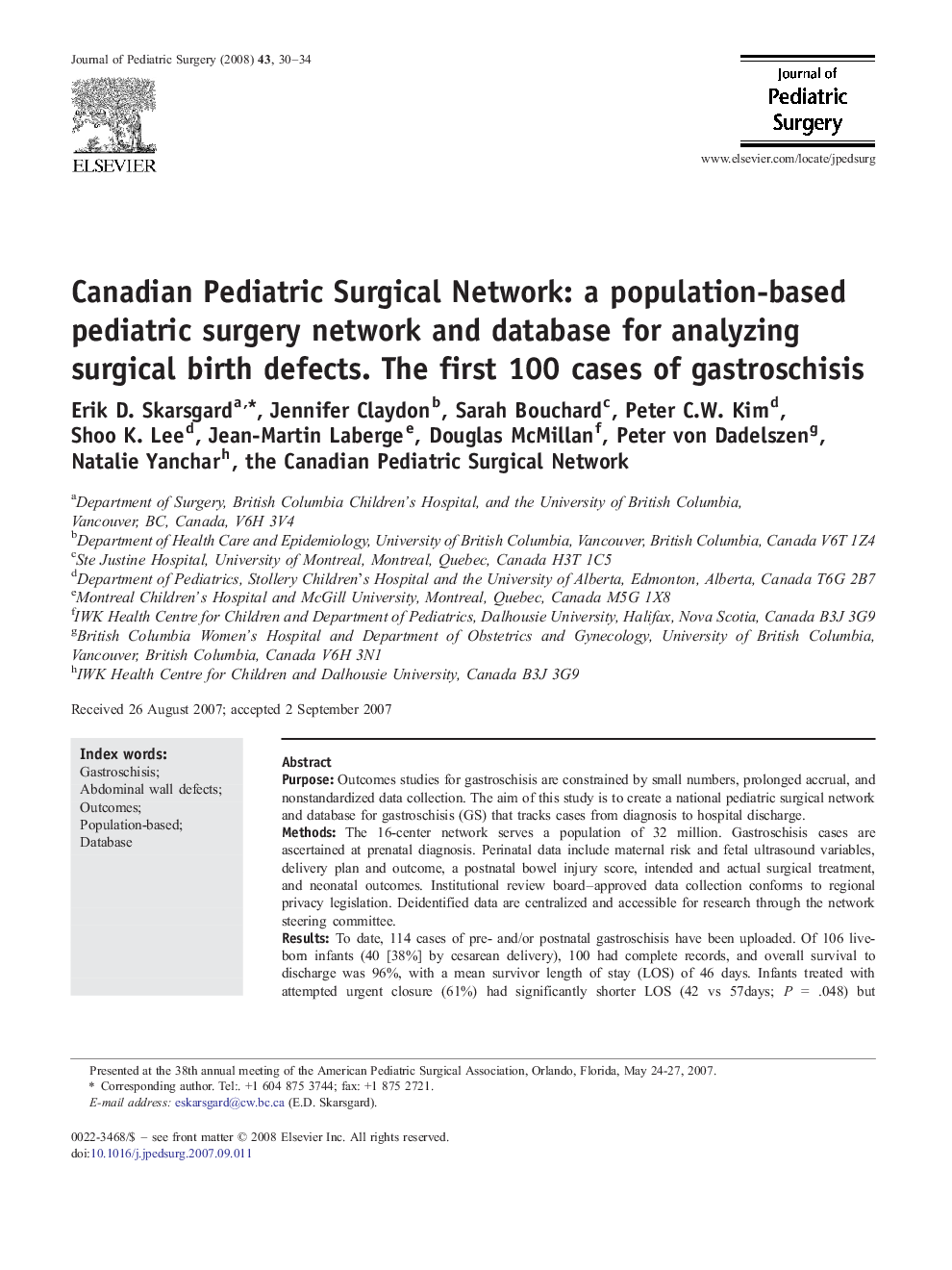| Article ID | Journal | Published Year | Pages | File Type |
|---|---|---|---|---|
| 4159185 | Journal of Pediatric Surgery | 2008 | 5 Pages |
PurposeOutcomes studies for gastroschisis are constrained by small numbers, prolonged accrual, and nonstandardized data collection. The aim of this study is to create a national pediatric surgical network and database for gastroschisis (GS) that tracks cases from diagnosis to hospital discharge.MethodsThe 16-center network serves a population of 32 million. Gastroschisis cases are ascertained at prenatal diagnosis. Perinatal data include maternal risk and fetal ultrasound variables, delivery plan and outcome, a postnatal bowel injury score, intended and actual surgical treatment, and neonatal outcomes. Institutional review board–approved data collection conforms to regional privacy legislation. Deidentified data are centralized and accessible for research through the network steering committee.ResultsTo date, 114 cases of pre- and/or postnatal gastroschisis have been uploaded. Of 106 live-born infants (40 [38%] by cesarean delivery), 100 had complete records, and overall survival to discharge was 96%, with a mean survivor length of stay (LOS) of 46 days. Infants treated with attempted urgent closure (61%) had significantly shorter LOS (42 vs 57days; P = .048) but comparable LOS compared with those treated with silos and delayed closure. Fetal bowel dilation 18 mm or greater did not predict a difference in outcome.ConclusionPopulation-based databases allow rapid case accrual and enable studies that should aid in the identification of optimal perinatal treatment.
